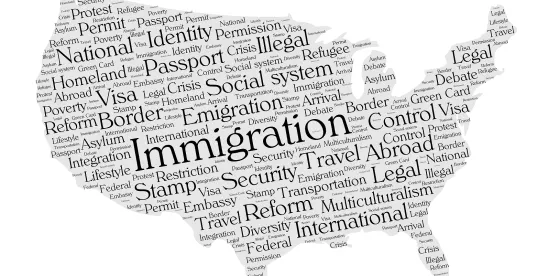Takeaways:
- Increased Worksite Enforcement: Businesses can expect a surge in ICE raids and I-9 audits at workplaces.
- Impact on Sanctuary Cities: Federal agents will target sanctuary cities for immigration enforcement operations.
- Employer Preparedness: Businesses, especially those operating in sanctuary cities, should have an action plan ready for potential ICE enforcement actions.
Tom Homan, President Donald Trump’s border czar, has announced a significant escalation in the administration’s interior immigration enforcement strategy to increase deportation of undocumented immigrants. The initiative involves deploying more federal agents to places of work, particularly those in “sanctuary cities.”
Targeting Sanctuary Cities
Although there is no official definition, in general a sanctuary city limits its cooperation with federal immigration enforcement agencies often to protect undocumented immigrants from deportation. Limited cooperation can take many forms, such as refusing to share information about undocumented immigrants with federal authorities or restricting local law enforcement’s involvement in immigration enforcement. These cities often refuse to detain undocumented immigrants who have not committed serious crimes, which has been a point of contention between local and federal authorities.
Homan’s announcement underscores the administration’s frustration with these jurisdictions. He stated that if federal agents cannot arrest individuals in jails, they will do so on the streets, and if they cannot do so on the streets, they will do so in targeted worksite enforcement operations. This approach is part of the federal government’s broader strategy to expedite removal of undocumented individuals regardless of whether they have committed serious crimes.
Immediate Implications for Employers
Homan outlined a two-pronged approach. First, there will be a higher presence of federal agents in sanctuary cities. This means that Immigration and Customs Enforcement (ICE) agents will be more visible and active in these jurisdictions, conducting operations aimed at identifying and detaining undocumented immigrants.
Second, Homan emphasized worksite enforcement operations. “If we can’t do it in the streets, then we’re going to increase worksite enforcement operations in those sanctuary cities. We’re going to flood worksite enforcement operations,” he said.
Increased Worksite Enforcement
Businesses can expect a substantial increase in I-9 audits and raids at workplaces. Employers should prepare for ICE enforcement actions, including audits of employment records and I-9s, raids, and arrests of undocumented workers and even the employers who hire them. Employers need to prepare well beyond routine I-9 Notices of Inspection from ICE, although I-9 audits are trending up as well.
Employer Preparedness
Employers, especially those in sanctuary cities, should be vigilant and prepared for increased ICE audits and raids and potential business disruptions. Understanding the broader context of the rising enforcement efforts can help businesses navigate the complexities of immigration compliance and enforcement.




 />i
/>i

